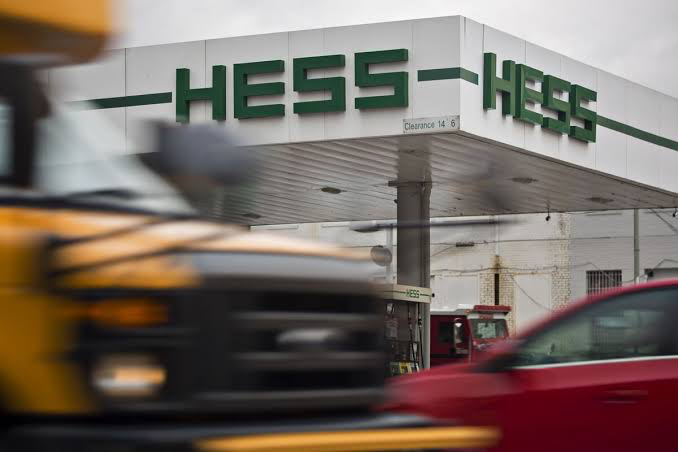Shares in U.S. oil producer Hess Corporation experienced their largest daily percentage drop in 20 months following news of a significant delay in its proposed sale to Chevron Corporation. The delay is due to an arbitration panel organized to hear Exxon Mobil’s challenge to the $53 billion sale, which will not convene until next May, pushing the deal’s closure to the second half of 2025.
Market Reaction and Investor Impact
Hess’ stock plummeted by $11.25, or 7.35%, marking its most substantial single-day decline since November 2022. Chevron shares also dropped by 4%, or $6.57, closing at $153.93 during midday trading in New York. The market’s reaction reflects investor concerns over the prolonged uncertainty surrounding the merger.
The all-stock sale, initially announced last October, has been stalled by additional scrutiny from the U.S. Federal Trade Commission (FTC). The antitrust regulator issued a second request for information, with the review expected to conclude this quarter. Despite this regulatory hurdle, the arbitration challenge presents a more immediate obstacle to finalizing the merger.
Exxon Mobil and CNOOC Ltd have filed arbitration claims, asserting a pre-emption right to any sale of Hess’ lucrative stake in a Guyana oil-producing joint venture. They argue that Chevron’s bid for Hess triggered a right of first refusal clause in their joint operating agreement in Guyana. Chevron and Hess dispute this claim, contending that the sale does not violate any such agreements.
The arbitration process is set to delay Chevron’s largest acquisition since its $36 billion purchase of Texaco in 2001. The panel’s decision, scheduled for next May, will determine whether Exxon and CNOOC’s claims hold merit, potentially impacting the merger’s viability and timeline.
Future Outlook and Strategic Implications
The delay complicates the strategic plans for both Chevron and Hess. For Chevron, acquiring Hess would significantly expand its portfolio, particularly with Hess’ assets in the prolific Guyana oil fields. The prolonged timeline introduces additional risks and uncertainties, which could affect both companies’ market positions and strategic planning.
Despite these challenges, Hess remains optimistic about the FTC review concluding positively. A Hess spokesman mentioned that the review should be completed within this quarter, potentially clearing one hurdle. However, the arbitration challenge remains a critical factor that could reshape the merger’s outcome.
Analysts suggest that the delay could also impact market perceptions and investor confidence in both companies. The extended timeline may lead to fluctuating stock prices and further scrutiny from shareholders and market analysts. The outcome of the arbitration and regulatory reviews will be pivotal in determining the future direction of this high-stakes merger.
As the situation unfolds, stakeholders will closely monitor developments, particularly the arbitration proceedings and the FTC’s findings. The merger’s success could set a significant precedent for future large-scale acquisitions in the oil and gas industry.
Source: Reuters



